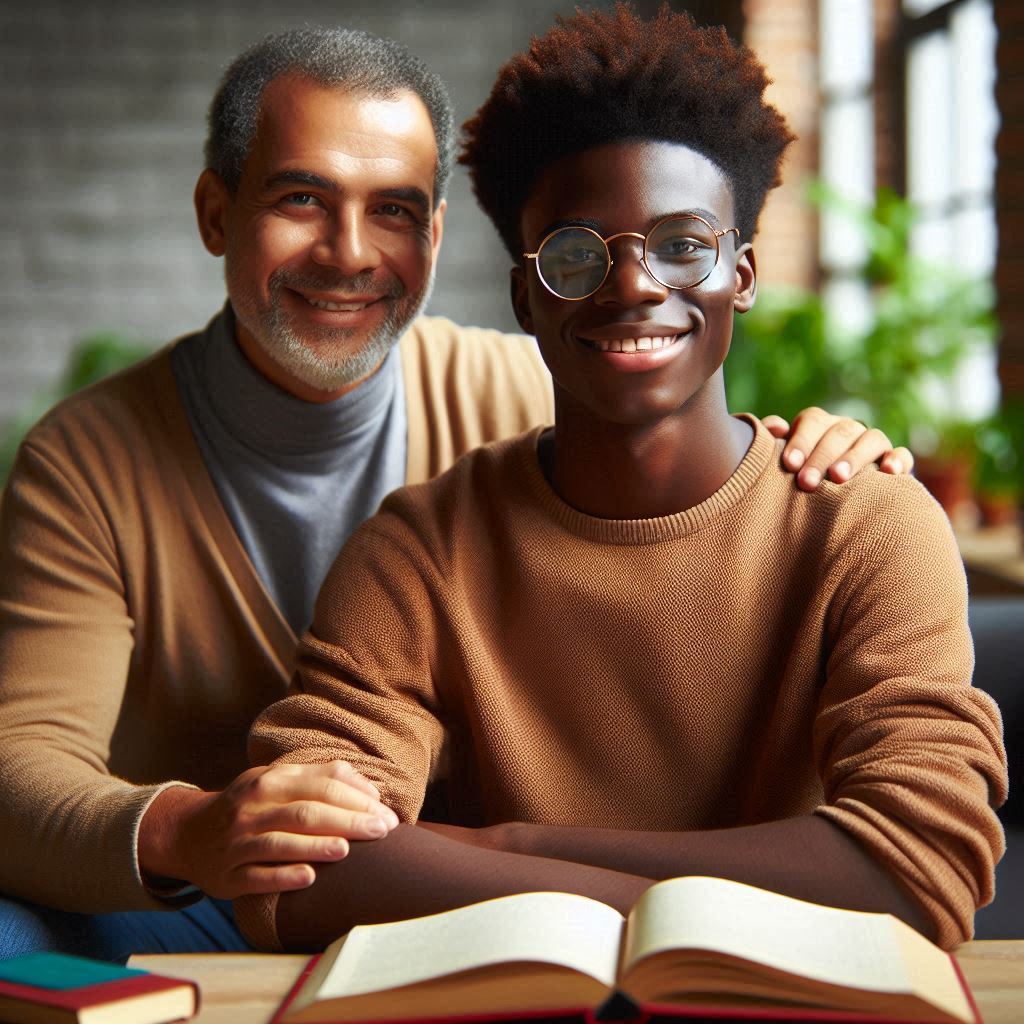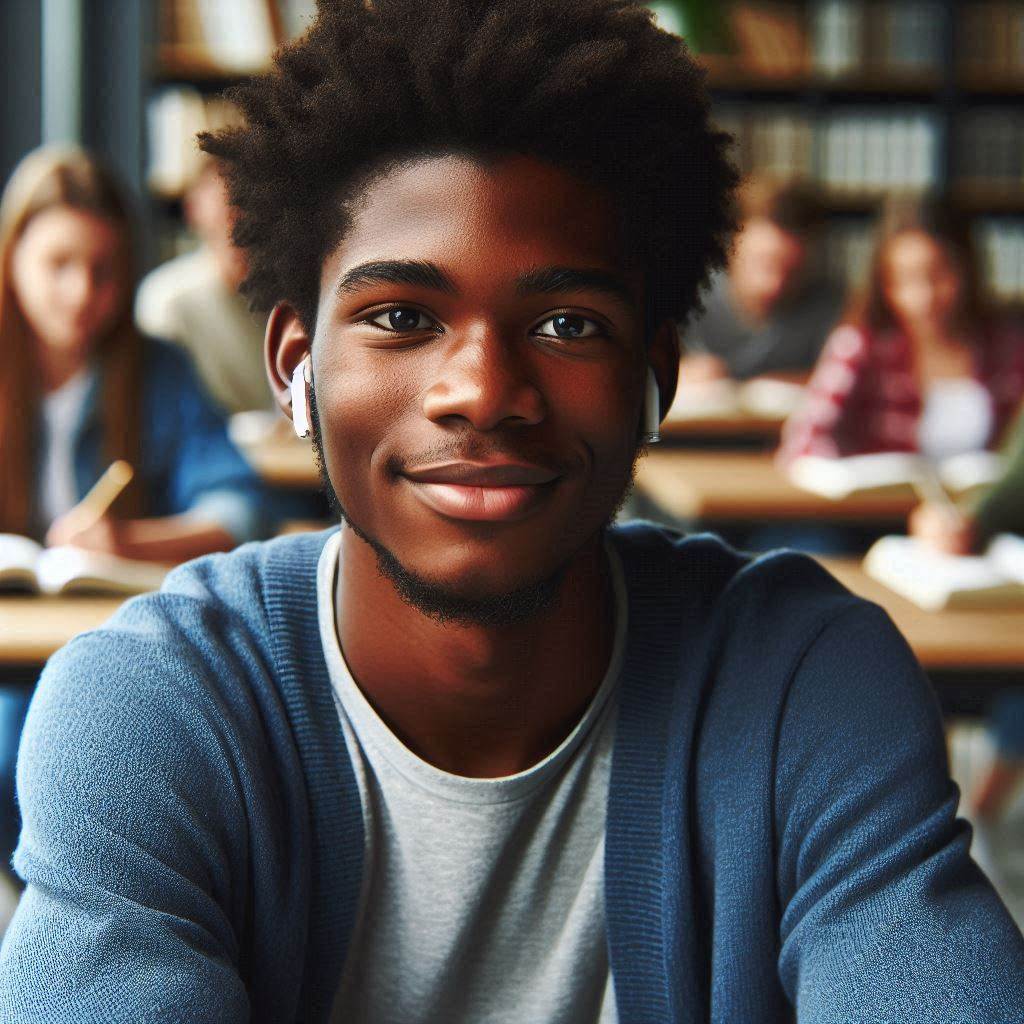Introduction
Special education is a tailored instruction for students with diverse learning needs.
Special education plays a crucial role in addressing each student’s unique requirements.
In Nigeria, the state of special education is gradually improving but still faces challenges.
Students with disabilities benefit greatly from special education programs.
Special education helps students develop skills to lead independent and fulfilling lives.
It provides individualized attention that enhances the learning experience for students.
Special education is essential for students to reach their full potential academically.
Students in special education programs receive specialized support and resources.
Special education fosters a supportive and inclusive learning environment for all students.
It enables students to build self-confidence and overcome challenges they may face.
In Nigeria, the importance of special education is increasingly recognized by educators.
Special education programs aim to meet the diverse needs of students with disabilities.
Overall, special education in Nigeria is a vital component of an inclusive education system.
Benefits of Special Education in Nigeria
Special education in Nigeria plays a crucial role in providing individualized learning support for students with disabilities.
This tailored approach ensures that every child has the opportunity to learn and thrive, regardless of their challenges.
Individualized Learning Support
One of the primary benefits of special education is the personalized attention and support it offers to students with disabilities.
By understanding each child’s unique needs and learning style, teachers can tailor their approach to ensure effective learning outcomes.
Fosters Inclusivity and Acceptance
Special education promotes inclusivity and acceptance in schools and communities by creating a supportive environment for all students.
This fosters a sense of belonging and encourages friendships and collaboration among peers, regardless of differences.
Equips Teachers with Specialized Skills
Special education also equips teachers with specialized skills and strategies to support diverse learners effectively.
Through training programs and professional development opportunities, educators learn how to adapt their teaching methods to meet the needs of students with disabilities.
Enhances Student Success
By providing tailored support and individualized learning plans, special education helps students with disabilities achieve academic success and reach their full potential.
This personalized approach addresses each child’s specific needs and challenges, leading to improved learning outcomes.
Promotes Equal Opportunities
Special education promotes equal opportunities for all students, regardless of their abilities or disabilities.
By offering specialized support and accommodations, schools ensure that every child has the chance to receive a quality education and develop essential skills for future success.
Strengthens Inclusive Practices
Special education in Nigeria also strengthens inclusive practices in schools and communities by raising awareness and promoting acceptance of diversity.
By celebrating differences and embracing individual strengths, special education fosters a culture of inclusivity and respect for all students.
Builds Social and Emotional Skills
In addition to academic support, special education focuses on building students’ social and emotional skills.
By providing a safe and inclusive environment, teachers help students develop communication, collaboration, and self-advocacy skills that are essential for success in school and beyond.
Empowers Students and Families
Special education empowers students with disabilities and their families by providing them with resources, support, and guidance.
By working collaboratively with parents and caregivers, educators can create a strong support system that enhances students’ learning experiences and overall well-being.
In fact, special education in Nigeria offers a wide range of benefits for students with disabilities, their families, educators, and society as a whole.
By providing individualized support, promoting inclusivity, and building essential skills, special education plays a vital role in creating a more inclusive and accessible education system for all.
Read: Curriculum for Special Education in Nigeria
Challenges facing Special Education in Nigeria
Lack of adequate funding and resources
In Nigeria, one of the primary challenges in special education is the severe lack of funding and resources.
This critical issue hampers the development and implementation of effective programs for students with disabilities.
Schools struggle to procure necessary equipment, teaching materials, and assistive technologies that are crucial for tailored education.
Without sufficient financial support from the government and private sectors, institutions often find themselves unable to meet even basic needs, let alone innovate or expand their services.
This chronic underfunding perpetuates a cycle of disadvantage for special needs students, denying them opportunities to thrive academically and socially.
Shortage of trained special education teachers
Another pressing issue is the shortage of qualified special education teachers.
Transform Your Career with Expert Guidance
Get personalized mentorship consulting that’s tailored to your unique path. Our expert advice is actionable and exclusive.
Get StartedSpecialized training is essential to effectively support students with diverse learning needs.
However, Nigeria faces a significant deficit in trained professionals who possess the skills and knowledge required to provide quality education.
This scarcity results in larger class sizes, inadequate individualized attention, and a lack of specialized teaching strategies.
As a consequence, many children with disabilities do not receive the personalized instruction they require to reach their full potential.
Stigma and misconceptions surrounding disabilities
Additionally, stigma and misconceptions surrounding disabilities pose substantial barriers to inclusive education in Nigeria.
Deep-rooted cultural beliefs and societal attitudes often lead to discrimination and exclusion of individuals with disabilities.
These negative perceptions contribute to a lack of support from communities and sometimes even within families.
As a result, children with disabilities may face bullying, isolation, and limited access to educational opportunities.
Changing these attitudes requires concerted efforts in education and advocacy to promote acceptance, inclusion, and equal rights for all students.
Addressing these challenges demands a multi-faceted approach involving increased funding, comprehensive teacher training programs, and widespread awareness campaigns to combat stigma.
By prioritizing these issues, Nigeria can begin to create a more inclusive educational system that empowers every child, regardless of their abilities, to succeed and contribute meaningfully to society.
Read: Identifying Special Needs Early in Nigeria
Success stories of Special Education in Nigeria
Special Education in Nigeria has had a significant positive impact on students with disabilities, showcasing success stories that highlight the benefits of inclusive education programs in schools.
Through testimonials from teachers, students, and parents, it is evident that special education has transformed lives and created opportunities for those who were once marginalized.
Specific cases of positive impact on students
A young boy with autism who struggled to communicate is now excelling in a special education program, thriving in an environment that meets his unique needs.
A girl with Down syndrome, once underestimated in traditional schools, has found her voice and confidence through specialized learning techniques tailored to her abilities.
Students with visual impairments are now able to access quality education with the help of assistive technology and trained educators who understand their challenges.
Children with physical disabilities have been integrated into mainstream classrooms, where they receive specialized support and accommodations to participate fully in academic and social activities.
Showcasing successful inclusive education programs in schools
Several schools in Nigeria have implemented inclusive education programs that cater to the diverse needs of students with disabilities.
These programs focus on creating a supportive environment where every child is included and valued, regardless of their abilities.
Through individualized education plans and adaptive teaching methods, students are able to learn and grow at their own pace, ensuring that no one is left behind.
Sharing testimonials from teachers, students, and parents
Teachers who have been involved in special education programs in Nigeria have witnessed remarkable transformations in their students.
They have seen children who were once struggling academically and socially thrive in an inclusive setting, thanks to personalized attention and targeted interventions.
Students themselves have expressed their gratitude for the opportunity to learn in a supportive environment that celebrates their differences and strengths.
Parents have also shared their appreciation for the positive impact of special education on their children, noting improvements in academic performance, self-esteem, and social skills.
In general, the success stories of Special Education in Nigeria serve as a reminder of the importance of inclusive education in creating a more equitable and inclusive society.
By highlighting specific cases of positive impact on students, showcasing successful inclusive education programs in schools, and sharing testimonials from teachers, students, and parents, we can see the transformative power of special education in Nigeria.
Read: Inclusive Education Policies in Nigeria

Gain More Insights: Profiles of Prominent Nigerian Biologists
Discover More: Scholarships for Automobile Tech Students Nigeria
Government initiatives and policies supporting Special Education
Overview of current government programs and policies
The Nigerian government has put in place various initiatives to support special education in the country.
These programs include the establishment of special schools, provision of assistive devices, and training for special education teachers.
Analysis of their impact on the Special Education sector
These government initiatives have had a positive impact on the special education sector in Nigeria.
Special schools provide a conducive learning environment for children with disabilities, while the provision of assistive devices has enhanced their learning experience.
Training for special education teachers has also improved the quality of education provided to students with special needs.
Suggestions for improvement and advocacy
Despite the progress made, there is still room for improvement in the special education sector.
The government should increase funding for special education programs to ensure they are adequately resourced.
Advocacy efforts should also be strengthened to raise awareness about the importance of inclusive education and promote the rights of children with disabilities.
- Enhance funding for special education programs
- Strengthen advocacy efforts for inclusive education
- Improve infrastructure and resources in special schools
- Provide continuous training for special education teachers
- Expand access to assistive devices for students with disabilities
Read: Parent Involvement in Special Education
Community involvement and support for Special Education
Importance of parental and community engagement in Special Education
- Parents play a crucial role in the success of special education programs.
- Community support helps create a more inclusive environment for students with disabilities.
- Engaged parents can advocate for better resources and support for their children.
- Involvement from the community can lead to greater acceptance and understanding of special needs.
Strategies for promoting awareness and acceptance of students with disabilities
- Organize workshops and seminars to educate the community about various disabilities.
- Encourage open discussions and dialogues to address misconceptions and stigma surrounding disabilities.
- Promote inclusivity by showcasing success stories of students with disabilities in various fields.
- Collaborate with local media to raise awareness about the challenges faced by students with disabilities.
Collaborative partnerships between schools, NGOs, and government agencies
- Schools can work with NGOs to access additional resources and support for special education programs.
- NGOs can provide training and expertise to teachers and staff working with students with disabilities.
- Government agencies play a crucial role in funding and policy development for special education programs.
- Collaboration between these entities can lead to a more comprehensive and effective support system for students with disabilities.
Overall, community involvement and support are essential for the success of special education programs in Nigeria.
By engaging parents, promoting awareness, and fostering partnerships between schools, NGOs, and government agencies, we can create a more inclusive and supportive environment for students with disabilities.
Conclusion
The benefits of Special Education in Nigeria cannot be underestimated.
It provides tailored support for students with disabilities, allowing them to reach their full potential.
As we have seen, inclusive education not only benefits the students but also the society as a whole by promoting diversity and equality.
It is essential for building a more inclusive and compassionate community.
Therefore, it is crucial to continue advocating for inclusive education in Nigeria and supporting initiatives that promote equal access to education for all.
By working together, we can create a more inclusive and diverse educational system that benefits everyone.
Let us all embrace and champion diversity and inclusivity in education, recognizing the unique strengths and talents of every individual.
Together, we can create a more inclusive society where everyone has the opportunity to thrive and succeed.




